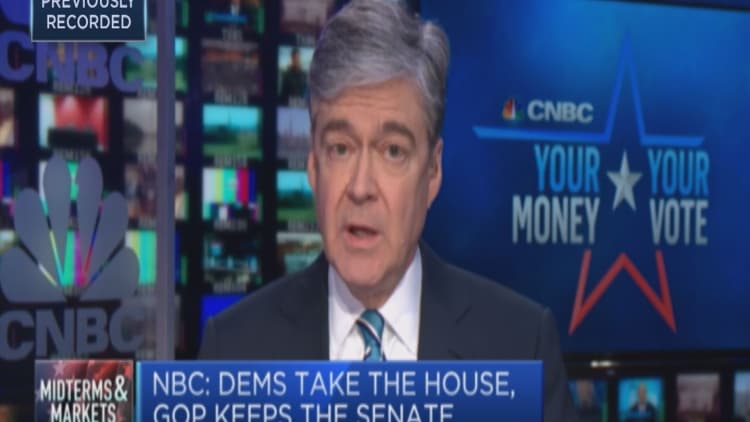His words of self-celebration signal one thing, his actions another: that President Trump knows he is in big trouble.
After American voters hit the brakes on his administration by flipping the House to Democratic control, Trump called a White House news conference to insist he had won "almost a complete victory." That referred to GOP gains in the Senate, which remains in his party's control thanks to victories in conservative states he had won handily in 2016.
And then he made plain he understands viscerally what he has lost.
That triumphal news conference turned into an unsettling 90-minute sojourn through Trump's psyche. Casting himself as a pitiable victim of hostile media coverage, he blew up at reporters whose questions pained him in ways unseen in the modern-day White House.

He berated one correspondent as the "enemy of the people," sending an aide to snatch away the microphone used to ask him a question. He ordered another to sit down. He told a third – an African-American who asked about white supremacy in light of his race-based appeals to white voters – that she had asked "a racist question."
If that didn't demonstrate discomfort enough, Trump went on to outline a fantasy alternative to the rebuke voters actually delivered him on Election Day. He said the results indicated that voters like him, even though a solid majority of them told exit pollsters they disapprove of his presidency. He suggested he had bested President Obama, who campaigned for a Democratic gubernatorial candidate in Georgia, because the Republican had won. (NBC News had yet to make a call in the race as of Thursday morning.)
Trump ascribed Democratic House gains to extraneous factors – superior fund-raising, retirement decisions by Republican incumbents – rather than the anvil his divisive presidency hung around the necks of GOP members in suburban districts. He openly mocked members who tried to survive by distancing themselves from him, calling them out by name and adding sarcastically, "too bad."
That offered a bitter refresher course in his self-absorption for Republican members who have shielded his scandal-tarred presidency from oversight while they pursued shared economic goals of tax-cuts.
"It disgusts me that he did that," retiring GOP Rep. Ryan Costello of Pennsylvania texted me during the press conference. "I'm so angry about it i can't even begin to speak."
Costello concluded: "Those members that lost deal with hell for two years – because of him."
As a result, Trump has lost his shield. Among the first actions House Democrats took on election night was to confirm they will exercise their rights to demand the president's tax returns from the Internal Revenue Service – a step Republicans refused to take.

Rep. Devin Nunes, who has furiously sought to undercut the Mueller probe, will surrender the chairmanship off the House Intelligence Committee. His Democratic replacement is former prosecutor Adam Schiff, a staunch Mueller defender.
That shift helps explain the president's abrupt announcement via Twitter that he had fired Attorney General Jeff Sessions. Trump has raged for more than a year about Sessions's decision to recuse himself from overseeing the Trump-Russia probe, which resulted in his deputy's appointment of Mueller.
That deputy, Rod Rosenstein, promptly gave up his oversight of the Mueller investigation. Rosenstein's replacement: Acting Attorney General Matthew Whitaker, who has publicly outlined a scenario for ending the investigation by cutting its budget.
The investigation has been exploring Trump's potential collusion with Russia as a candidate, obstruction of justice as president, and financial entanglements as a business executive. Along with federal prosecutors in New York, Mueller has already obtained guilty pleas and witness cooperation from Trump's former campaign chairman, deputy campaign chairman, White House national security adviser, and long-time personal lawyer.
Mueller has not completed his work. He still seeks to interview the president.
Senate Democratic Leader Charles Schumer warned that attempting prematurely to shut down the investigation would trigger a constitutional crisis. An anxious president faces a legal as well as political turning point.


